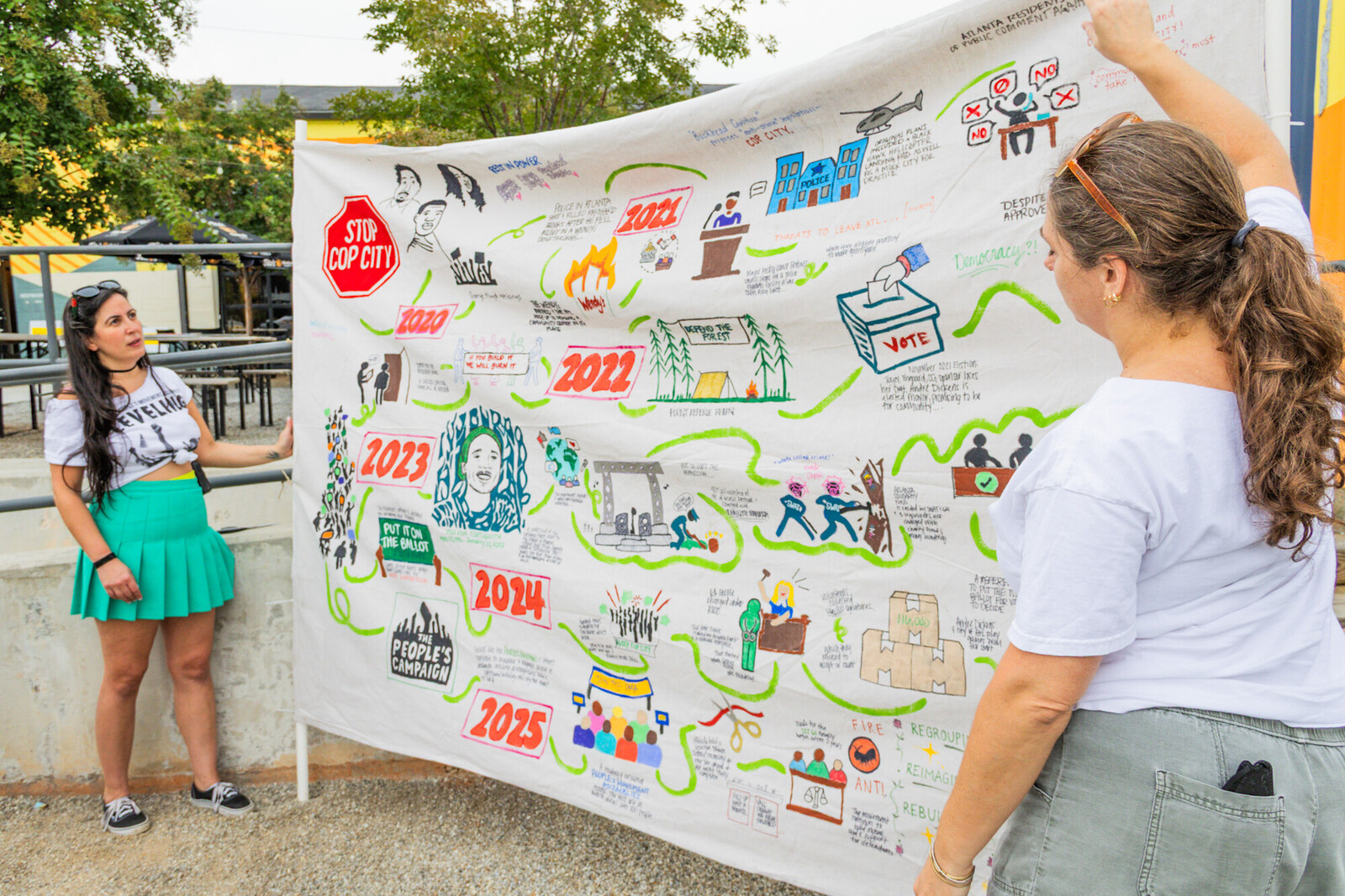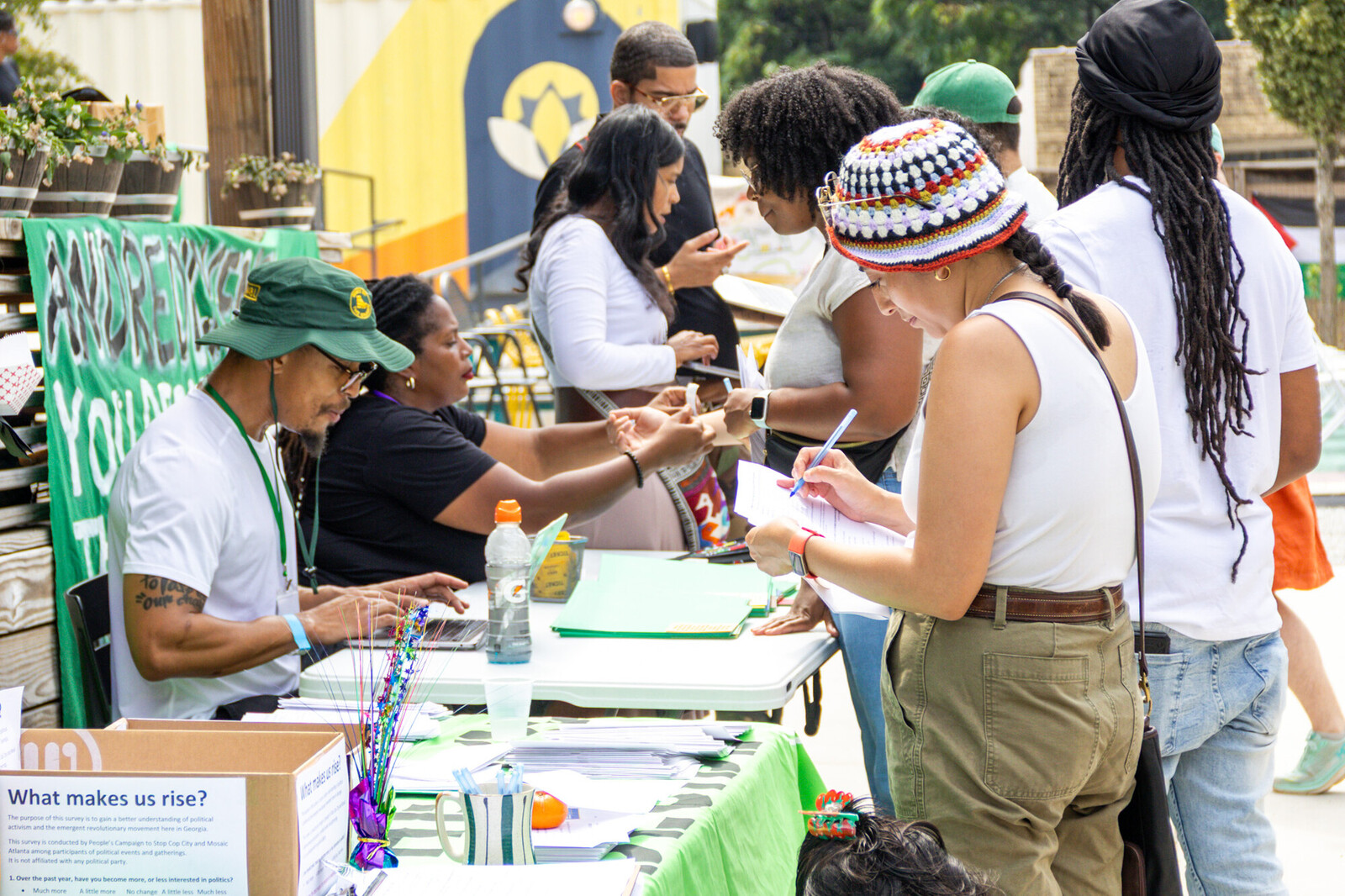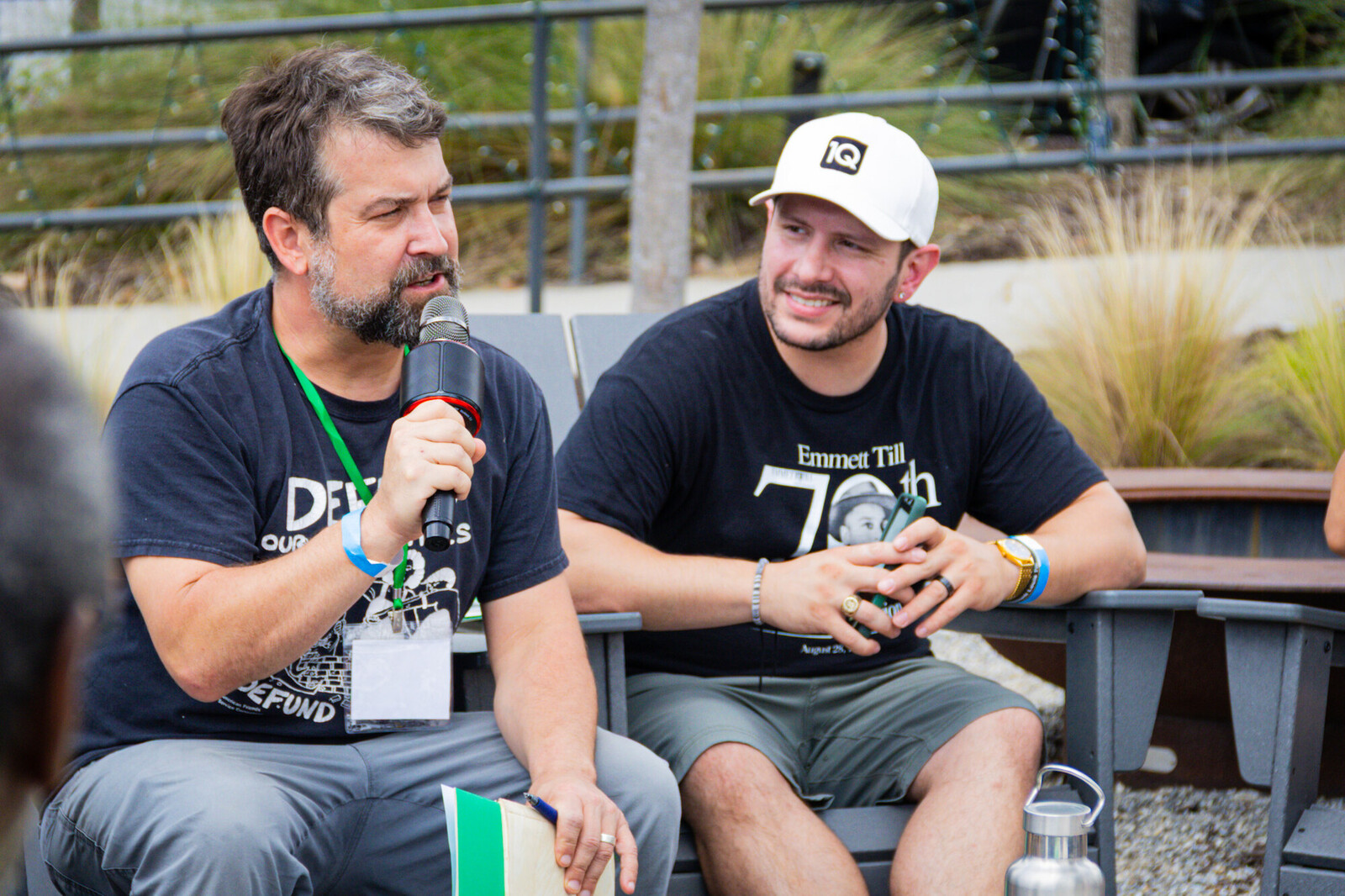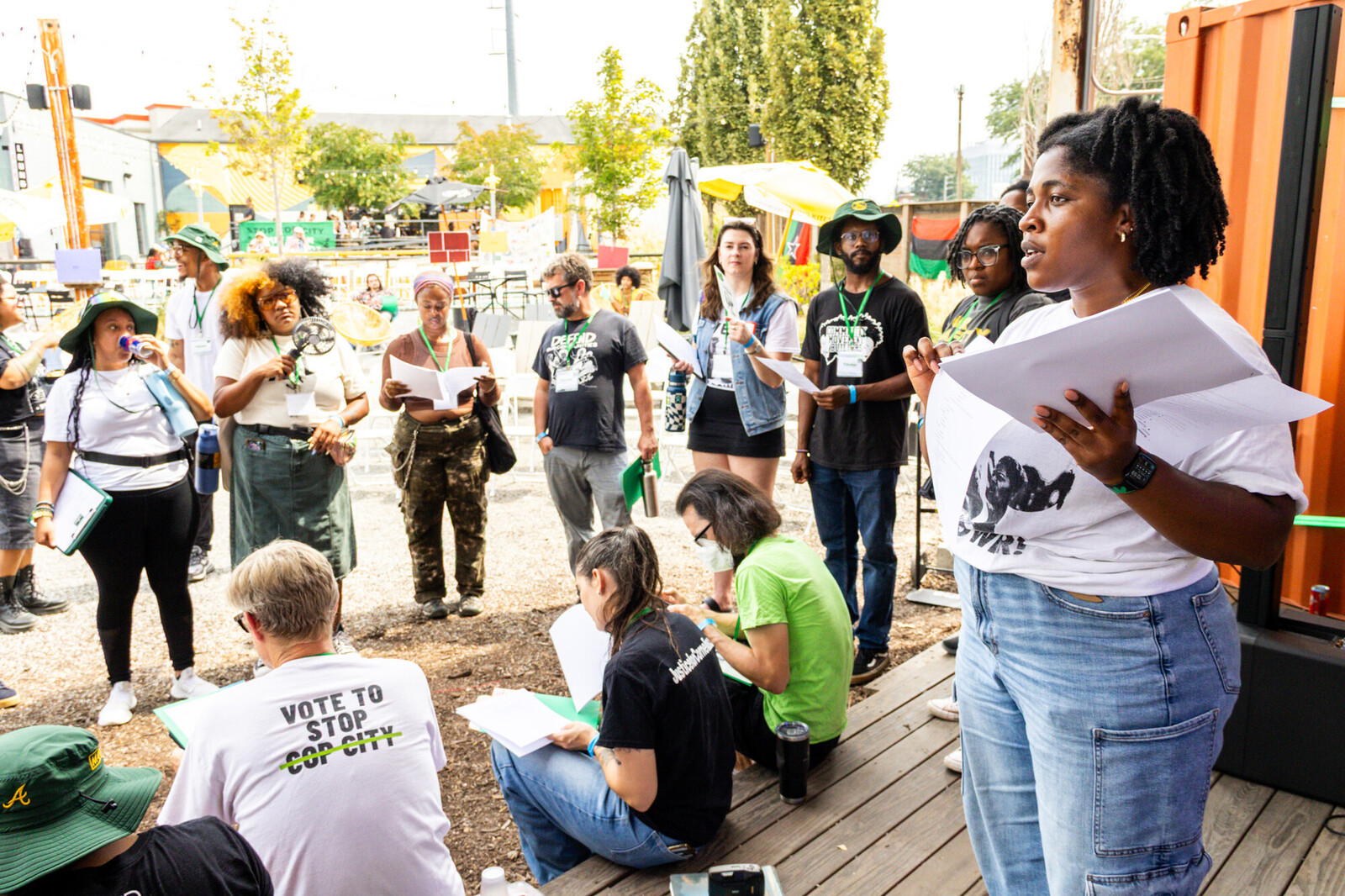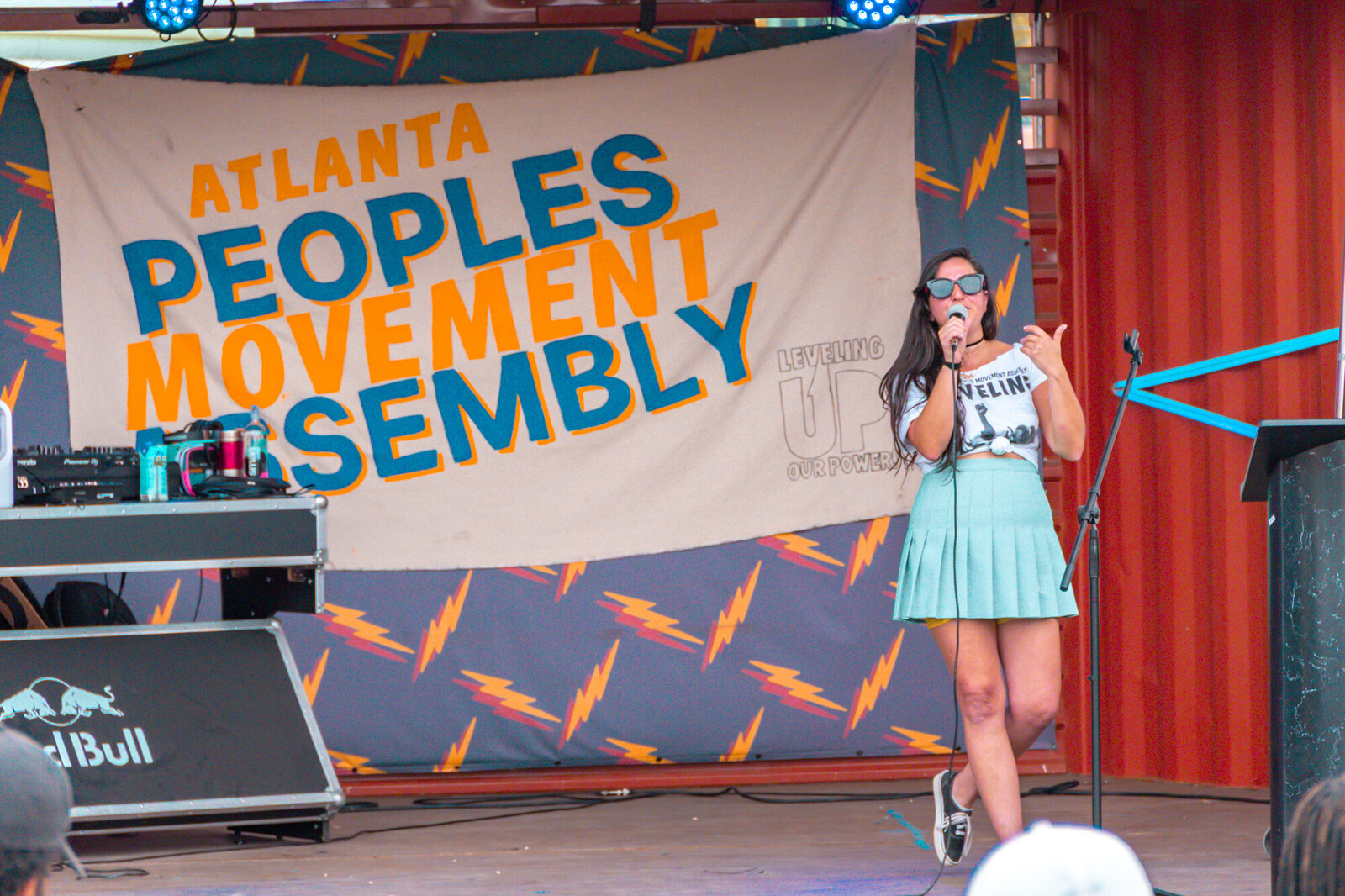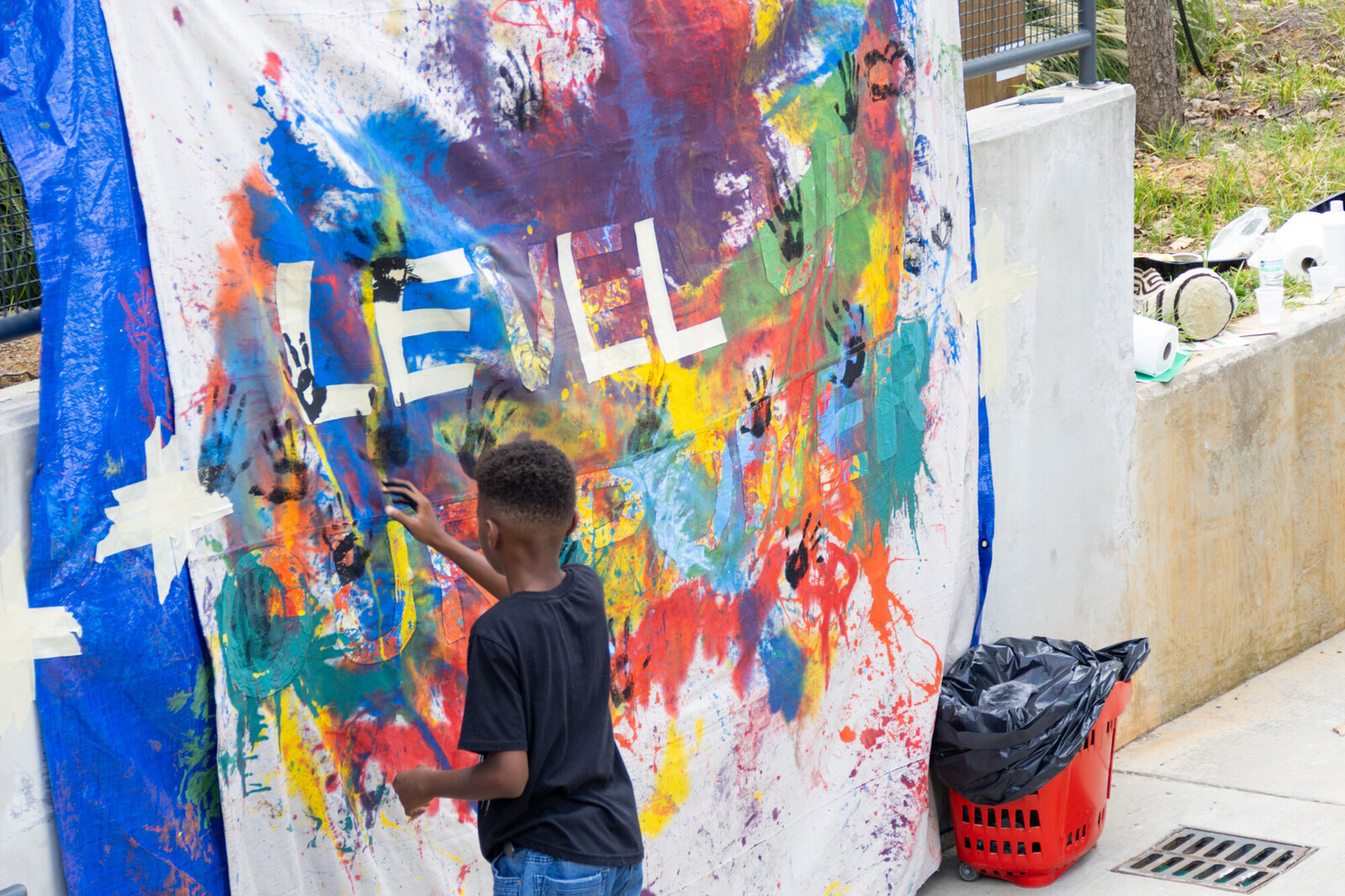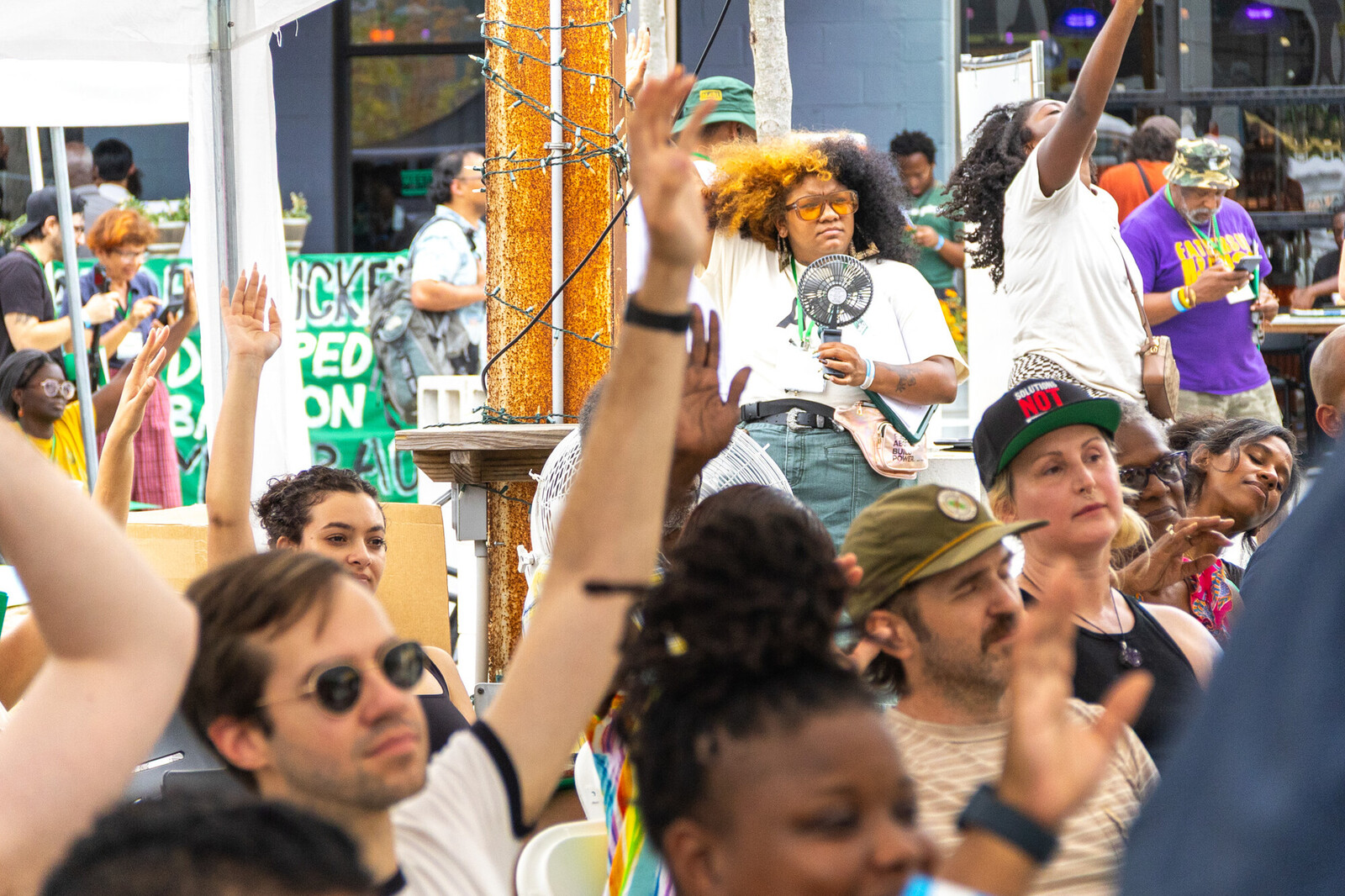
Photo: Angela Hill
Every Wednesday for more than three years, 30–40 people have gathered in the meeting room at the AFSC office to continue an ongoing conversation in our community, one that no amount of investment in failed policing strategies can silence.
The People's Campaign has refused to stop working for a vision of our community that does not rely on destructive policing strategies and instead believes that the solutions to the issues facing us are found among the ranks of people who live these same issues.
Almost a year after the official opening of Cop City, the movement to stop the failed strategies that it represents continues to grow stronger, more strategic, and more rooted in community power. The facility, built on 85 acres of the Weelaunee Forest, has become a symbol of environmental destruction, police militarization, and failure of the democratic process. Despite collecting over 116,000 signatures in a citywide referendum effort, the mayor of Atlanta, Andre Dickens, refused to count them, pushing forward with construction and ignoring the will of the people.
The opening of Cop City has not marked the end of the struggle—it has marked a new beginning. The surrounding neighborhoods are already experiencing increased flooding, and the area has become a militarized zone. Yet, the movement persists.
It is in this context that the second citywide People’s Movement Assembly (PMA) was held on September 6, bringing together over 400 people representing a multiracial, multigenerational cross-section of Atlanta. With the support of 19 partner organizations, the PMA was a powerful demonstration of people-powered resistance and vision. It followed the first citywide PMA held earlier in the year, where more than 200 residents came together to establish a draft community definition of public safety that reads: "Public safety is rooted in our shared experiences of neighbors protecting neighbors, alongside organized systems and third spaces that provide accountability and meet everyone's basic needs on our own terms."
The space was opened by honoring our ancestors and those we’ve lost to police violence, grounding ourselves in love, memory, and resistance. From there, participants were guided through the history of people’s assemblies as an international strategy for building power. AFSC’s Shabnam Bashiri offered a powerful reflection on the fight to Stop Cop City and how the PMA process is the next phase of that struggle: reclaiming democracy, defining safety on our own terms, and charting a new vision for our city.
The heart of the PMA was the breakout sessions. Across dozens of small groups, the people of Atlanta’s neighborhoods and streets wrestled with three urgent questions:
- What are the biggest threats we are facing right now and why?
- What strengths and opportunities do we have to fight back?
- What is the first step we can take to challenge the city’s vision of public safety?
Through deep dialogue, storytelling, and strategy, three clear priorities emerged:
- Hyperlocal programs to build community and directly confront the power of the state.
- Education and truth-telling, especially to counter misinformation and disinformation fueled by AI and the opposition.
- Alternative systems building, investing in new models of safety, justice, and community care that reflect our values.
The PMAs affirmed what we already know: the systems we are told are meant to protect us are failing, and it’s up to us to care for one another. In a time when authoritarian forces are consolidating power, Atlanta will not stand still. The synthesis of this city-wide PMA has set our direction—networks of every-day people in Atlanta that strengthen our collective power, coordinate mutual aid and survival programs, and mobilize when crises hit—whether climate disasters, political repression, or threats to our freedom. We have the spaces, the vision, and the determination. Now we will map our resources, set shared commitments, and prepare to move together when it matters most.
Jacob Flowers
South Regional Director
Can you give to support this important work? Please consider a donation as you are able to help us continue to protect, resist, and build!
Learn more about the Atlanta Economic Justice program and sign up for updates.
